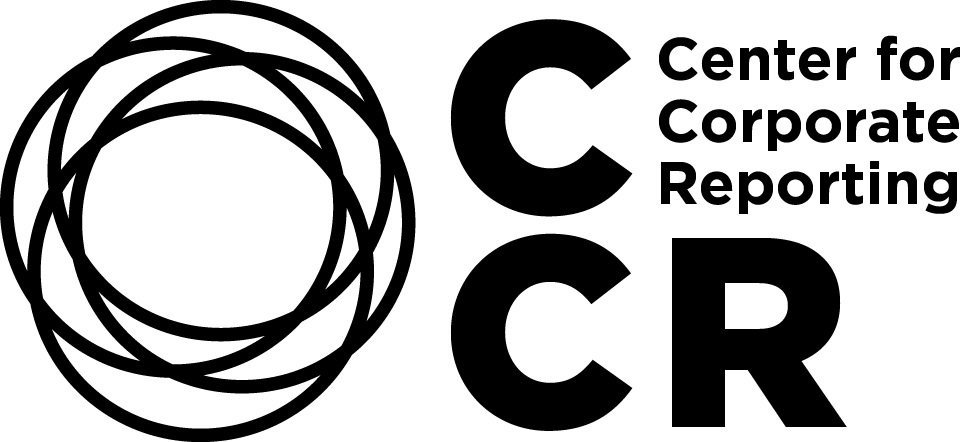Beyond regulated supply - Intelligent demand
Now we are cracking the supply side of reporting, we must solve the demand side.
By John Elkington
Some thirty years ago, I recall a senior executive from Shell instructing me that his giant oil major would never report on what we would now call its sustainability performance – because, he insisted, “Shell is too big and too complex”. A few years later, in the wake of two major scandals in Nigeria and the North Sea that rocked Shell to its foundations, we helped the company produce its first-ever sustainability report, titled (after the triple-bottom-line concept I had recently launched) People, Planet & Profits.
At the time, we represented the largely frustrated demand side of the reporting equation. Indeed, when I had co-founded Environmental Data Services (ENDS) back in 1978, business was very unwilling to talk to outsiders about such sensitive issues – and when we did get inside corporate gates and doors, we were usually corralled by lawyers and public relations specialists. People whose job it was to keep people like us as far as possible from the guts of the business, particularly their boards.
It didn’t work, of course, with much of our work this century being with C-suite teams and boards. But at the time you had to work hard – and we did – to pull together the small and tucked-away sections in corporate annual reports covering safety, health and environmental issues, even where such areas of performance were regulated.
At the time, I read pretty much every report published, worldwide – even going as far as publishing report samplings, rather like wine tastings, before we started evolving some heavy-duty benchmarks alongside partners like the Global Reporting Initiative (GRI) and International Integrated Reporting Council (IIRC). And what a shift we have seen in the intervening years and decades. These days, surveys by the likes of KPMG show that more than 90% of publicly listed businesses produce such reports.
Meanwhile, regulatory requirements are hardening, as in the EU’s Corporate Sustainability Reporting Directive, or CSRD. This will affect up to 50,000 business in the region – and several thousand elsewhere. In China, the Shanghai Stock Exchange (SSE), Shenzhen Stock Exchange (SZSE) and Beijing Stock Exchange (BSE) have recently announced new sustainability reporting guidelines for listed companies, including a requirement for hundreds of larger cap and dual-listed issuers to begin mandatory disclosure on ESG topics in 2026.
Job done, you might say. Hardly. As the supply side finally begins to kick into gear, we can expect to be awash in ESG data and information soon. Sometimes, however, you get what you thought you wanted, but then find it’s not what you need.
Lay aside, for the moment, the criticism that almost all this corporate information tracks what particular businesses and their supply chains are doing – not, as the future will insist they should, the links between what companies are doing and what is happening in the wider world. No, a much more immediate question is: who is working on the demand side for all this information, aggregating it, slicing-and-dicing it and feeding it back to private and public sector decision-makers to better inform the relevant sustainability transitions?
People like BlackRock, Bloomberg and Reuters have been among the early pioneers, of course, but my hunch is that supply is now likely to run way ahead of intelligent demand – unless we now do something about it.
One thing I have done in recent years is visit leading AI firms, among them HP and DeepMind, before it was acquired by Google, to try and get some sense of how their key people and R&D activities might help us with our increasingly urgent need to gather, process and sell on market intelligence linked to sustainability challenges and opportunities. I have also visited people like SAP in California and the Warsaw-based AI team of Paris-based EcoVadis, where I have been on an advisory board since 2007, to get a sense of how expert systems and AI can help them track over 130,000 businesses around the world.
These are relatively small-scale experiments compared with what the future will demand of us. But one thing I do find ironic is the constant complaint from developers of next-generation AI systems that they are struggling to find enough data to feed their algorithms and databases as they learn how to understand the wider world. Surely these new areas of need, demand and supply can be brought together in ways that benefit all involved.
After fifty years professionally involved in the business of environmental management, corporate responsibility and sustainability, I am planning to spend some of 2024 visiting pioneers involved in related areas – particularly in the United States. These are learning curves we are going to have to climb, and I am perfectly happy to share what I am learning along the way. But I am always on the look-out for smaller-scale, more innovative ventures that might otherwise pass us by. Your suggestions would be very welcome via john@volans.com.
John Elkington
has been described as the “godfather of sustainability”. He has co-founded four companies, including Volans, where he is chairman and chief pollinator. He is the author of 21 books — the latest published by Fast Company Press, being Green Swans: The Coming Boom in Regenerative Capitalism. The 21st will launch in May, also via Fast Company Press. This is called Tickling Sharks: How We Sold Business on Sustainability. John has served as a member of some 80 boards and advisory boards and is a visiting professor at several leading universities.



